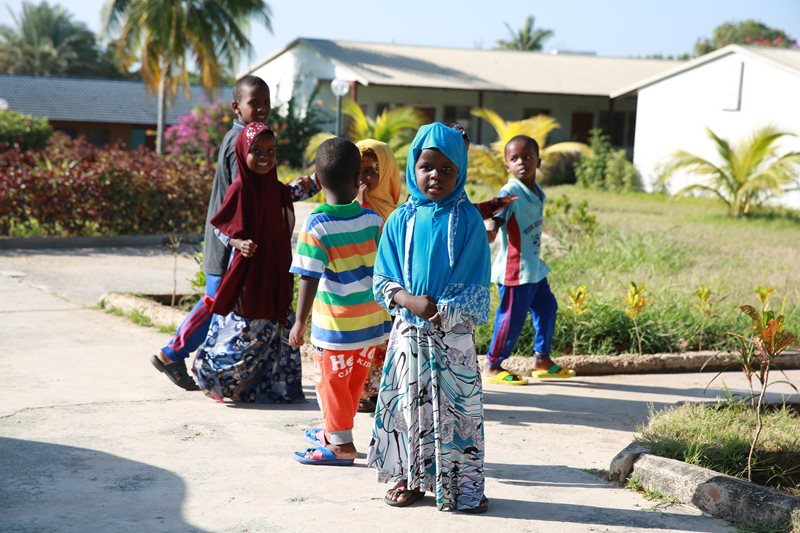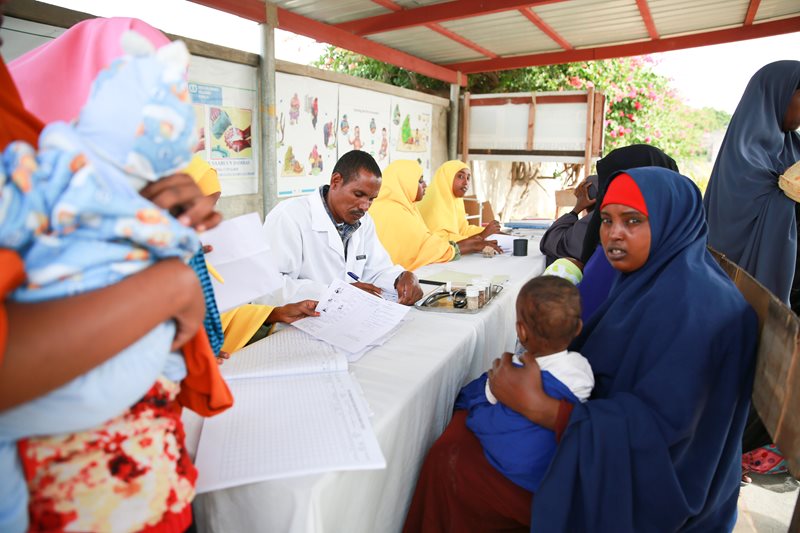Children are hit the hardest by the precarious situation of the country

Brothers and sisters in our care in SOS Children's Village Mogadischu(photo: SOS archives).
For many years, clans and warlords controlled Mogadishu and other parts of the country. Fighting between Somalia’s Transitional Federal Government forces, supported by African Union Troops, and the insurgent groups such as the Islamist al-Shabaab militia, went on for decades. Southern and central Somalia were most severely affected by the armed conflict.
To make matters worse, al-Shabaab was accused of recruiting child soldiers as young as ten, and Human Rights Watch stated that the group abducted young girls to fight, perform domestic duties or to become the wives of soldiers. Children who had lost the care of their parents or had been separated from them were most vulnerable to falling into the hands of insurgent groups.
In addition to the violence, frequent periods of drought and food shortages have led to repeated famine. Somalia has one of the highest malnutrition rates in the world. Children often lack the necessary food for them to grow healthily. In addition many families don’t have access to medical advice and treatment.
The future is unpredictable, but our work is indispensable
SOS Children’s Villages began working in Somalia in 1985, and since then we have been adapting our work to the unstable security situation in the country. In 1991 when the civil war broke out, we started medical and food emergency programmes.
In 2006 war erupted again when the troops of the Transitional Federal Government of Somalia, together with Ethiopian troops, started to fight the Islamist al-Shabaab militia. Over the next years, SOS Children’s Village in Mogadishu was heavily affected by the fighting, and we repeatedly had to evacuate the families or close down our programmes for security reasons. In 2009, the SOS co-workers and the children in our care were able to move back into the children’s village, but in 2011 the village once again had to be evacuated.
The SOS families were able to return to the village in December 2012, and have been living there safely since then. Although the situation has somewhat improved over the last years, Somali families continue to face many challenges.
What we do in Mogadishu

Care in SOS families: At the SOS Children’s Village in Mogadishu, up to 120 children who have lost parental care can find a loving home in one of eleven SOS families. They live with their brothers and sisters, affectionately cared for by their SOS mother.
Support for young people: Young people who are ready to leave the family home, can move into the shared accommodation of the SOS Youth Programme. The SOS Nursing College in Mogadishu offers a three-year vocational training course in nursing and midwifery to young people from all over Somalia. There is great demand for nurses and midwives in the country.
Strengthen families: We provide support to families so that they can stay together, care for their children and make a living. We offer different kinds of support depending on the needs of the family. This assistance ensures that the families have enough food, and that the children can go to school or visit the doctor if they are ill.
Education: We also run a kindergarten and provide primary and secondary schooling to local children as well as those from SOS families. Education will give children the chance to improve their lives.
Medical care: The SOS Mother and Child Clinic and the SOS Clinic in the nearby Badbado refugee camp are the core of our work in Somalia. SOS Children's Villages provides access to free and high quality medical care for many of the poorest in the areas surrounding Mogadishu. We provide ante-natal care to women, ensuring they have a healthy pregnancy and birth. Postnatal health is also provided at the new-born unit of the Mother and Child Clinic. The unit was established in 2013, due to a lack of such free services in the area. Around 60 babies receive inpatient treatment every month. The babies are often too small or too weak at birth, and wouldn't survive without the medical care we provide.